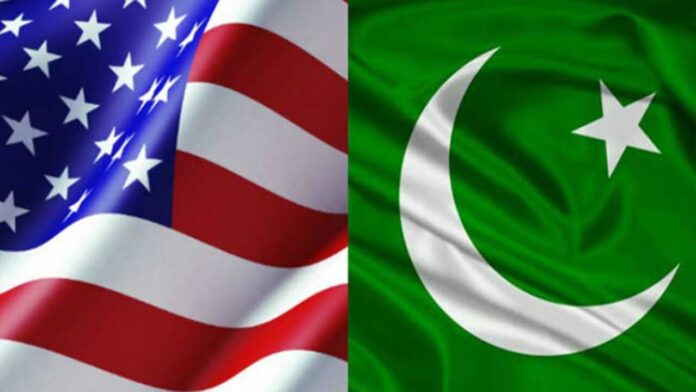As Pakistan revives a defense cooperation deal with the U.S. through the CIS-MOA, an emerging amendment in the U.S. Congress threatens to partially offset that cooperation understanding because of the growing bipartisan concerns over Pakistan’s current democratic trajectory.
The Communication Interoperability and Security Memorandum of Agreement (CIS-MOA) signed in late July was quietly approved by the cabinet of PM Shehbaz Sharif. It promises the strengthening of defense ties and paves the way for Islamabad to procure military hardware from Washington, in addition to joint exercises and intelligence sharing. The revival of CIS-MOA which had expired in 2020 signals Washington’s readiness to work closely with the Pakistani military.
However, the dynamics may shift with the introduction of an amendment by Tennessee Republican Andy Ogles in the U.S. House of Representatives. Ogles proposes to bar the Pentagon from assisting Pakistan, reflecting bipartisan concerns about the state of democracy in the South Asian nation. This comes in the light of the controversial imprisonment of former Prime Minister Imran Khan under Pakistan’s Official Secrets Act, a move that many see as indicative of democratic backsliding.
The crux of the concern in U.S. legislative circles revolves around the potential amendment to the appropriations bill. Although its success might seem improbable, its mere introduction signifies deep-rooted bipartisan apprehensions on the state of democracy in Pakistan.. An echo of this sentiment was evident earlier in the summer when Democratic Rep. Greg Casar of Texas proposed a directive for the State Department, meant to highlight and assess the apparent democratic deviations in Pakistan. Though it never made it to a vote on the House floor, it reaffirmed the narrative of caution among U.S. legislators regarding Pakistan’s democratic commitment.
Should Ogles’ amendment gain traction and ultimately pass, it stands to overshadow the intentions and potential benefits of the CIS-MOA. Such an outcome would stress the intricacies and nuances of international diplomacy, showcasing how geopolitical strategies and the pursuit of democratic values can sometimes clash, mostly to the detriment of a country like Pakistan.
On the ground in Pakistan, the scenario is even more complex; raging energy prices and inflation coupled with the resultant economic distress is already fueling resentment, with protests all over the country – at the moment against the spike in electricity bills.
The nation’s chequered relationship with the International Monetary Fund (IMF), economic challenges, and its increasing role in regional defense dynamics, as indicated by its alleged military aid to Ukraine, add more layers to this intricate geopolitical puzzle.
It seems the U.S. and Pakistan – the security establishments in particular – are very much in synch on certain issues including diplomacy, defense, and democracy, something not necessarily befitting the globally acknowledged and practiced democratic values.




